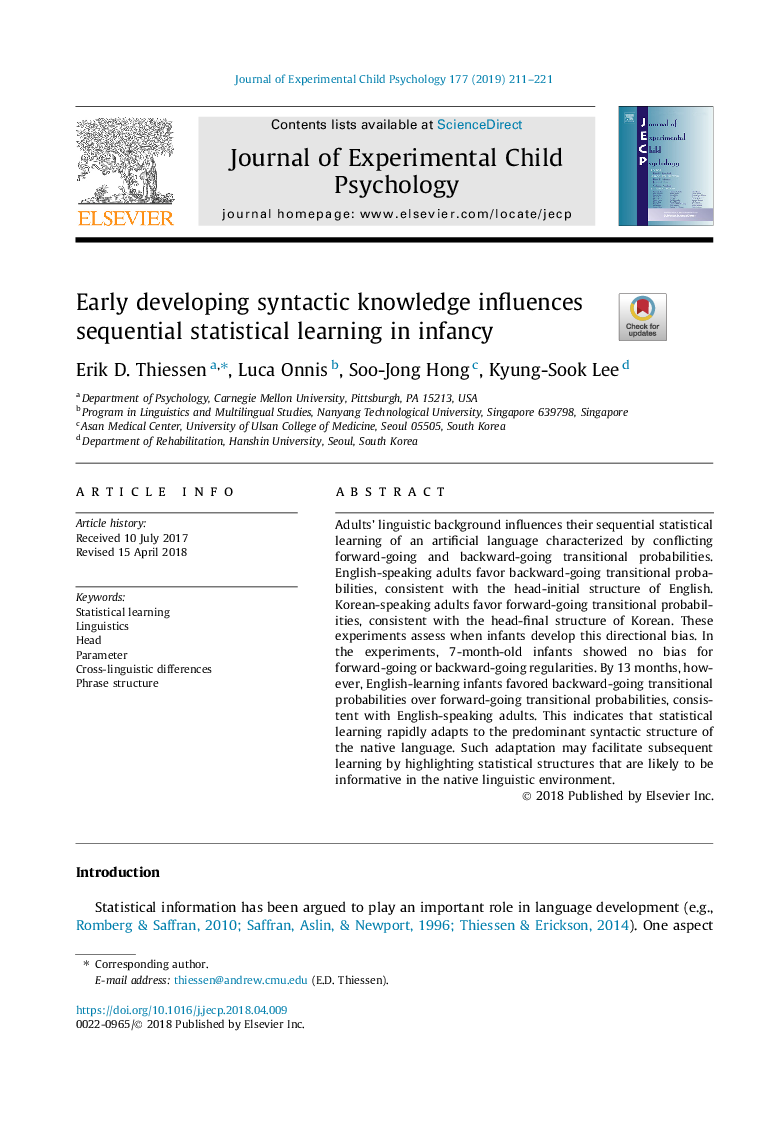| Article ID | Journal | Published Year | Pages | File Type |
|---|---|---|---|---|
| 10140348 | Journal of Experimental Child Psychology | 2019 | 11 Pages |
Abstract
Adults' linguistic background influences their sequential statistical learning of an artificial language characterized by conflicting forward-going and backward-going transitional probabilities. English-speaking adults favor backward-going transitional probabilities, consistent with the head-initial structure of English. Korean-speaking adults favor forward-going transitional probabilities, consistent with the head-final structure of Korean. These experiments assess when infants develop this directional bias. In the experiments, 7-month-old infants showed no bias for forward-going or backward-going regularities. By 13â¯months, however, English-learning infants favored backward-going transitional probabilities over forward-going transitional probabilities, consistent with English-speaking adults. This indicates that statistical learning rapidly adapts to the predominant syntactic structure of the native language. Such adaptation may facilitate subsequent learning by highlighting statistical structures that are likely to be informative in the native linguistic environment.
Related Topics
Social Sciences and Humanities
Psychology
Developmental and Educational Psychology
Authors
Erik D. Thiessen, Luca Onnis, Soo-Jong Hong, Kyung-Sook Lee,
